Ann Wason Moore: Pradesh Ramiah is an environmental planner by day and comedian by night
Pradesh Ramiah on juggling being an environmental planner by day and comedian by night. READ THE INTERVIEW >>>
Gold Coast
Don't miss out on the headlines from Gold Coast. Followed categories will be added to My News.
THEY call him The Deshman.
Disguised in a business suit, he’s an environmental planner by day … but by night, he’s a not-so-corporate comedian.
He may not be the superhero we deserve, but he is truly the superhero we need.
After all, if this city can lighten up about urban planning, truly anything is possible.
Fortunately, that’s all in a (long) day’s work for Desh, aka Pradesh Ramiah.
Desh was born in Durban to Indian South African parents but raised near Rockhampton … and growing up Hindu in the beef capital of Australia is perhaps the reason he finds being a little different completely ordinary.
From receiving accolades for his contributions to government policy to receiving applause for entertaining the capacity crowd at Sydney’s Olympic Stadium (during the State of Origin while wearing a Maroons jersey), from appearances on the Footy Show and Rove to membership in the Planning Institute of Australia, Desh is nothing if not versatile.
But while he can switch between business suit and civvies, what he can’t change is the skin he’s in - and providing some diversity in this fair, fair city is just one more service this superhero offers.
“I’ve dealt with comments about my skin colour all my life, when I play golf someone always thinks I’m the greenskeeper,” says Desh.
“It’s rarely full-on racism, but it’s a lot of just micro-aggressions.
“But that’s the great thing about comedy, I can switch the sting around. And, even better, I can provide some representation for people who are not Anglo.
“My experience growing up in Rockhampton and Yeppoon was actually really positive - but I was the son of a doctor and I was the only Indian South African. The indigenous kids would have a very different story from me - so even though I’m still a minority, I have a different experience again.
“But being an outsider is the perfect place for a comedian … it gives you a very unique perspective.”
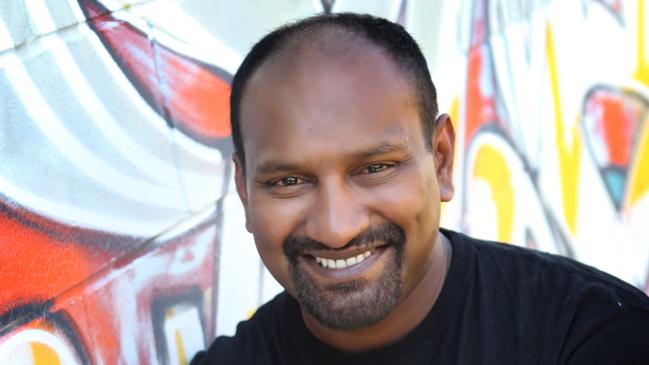
However, something that Desh takes very seriously is his love for the land, something that some find surprising considering he is a first-generation Australian.
But Desh says not only is that what lead him to environmental planning, but it turns out it’s a trait that runs in his blood.
“It’s like they say, you can’t outrun fate,” he says.
“Even though my family lived in South Africa and were Indian, they have the same love of country as I do - it’s just a different country.
“My mother’s family lost their farm under apartheid, they were forced to move to a designated area in Durban for Indian South Africans. My father was politically active, he had a medical degree which was highly unusual for his race at that time, but he knew things were going from bad to worse and he wanted to get his family out.
“My father built a new life here, he became the first registrar at Yeppoon Hospital and he later formed an international society, he was someone who was connected to everybody in his community.
“I knew I was different to the other kids in Yeppoon, but what really made me realise that was when we would visit family in South Africa - suddenly I knew what it was like to look like everyone else. But I was still an outsider of sorts.”
Desh’s fierce individual streak meant he was something of an anomaly when it came to his education - a son of immigrants who was happy just to pass.
But he must have inherited enough intelligence to still pursue science at university - even if his options were more limited than expected.
“Every Indian family wants to have a doctor or a lawyer - but I was the son of a doctor so there was only one way I could go.
“I finished high school with a pretty mediocre TE score and the only science degree I could get into was environmental science … but it turned out that was the right fit for me.”
Desh says knowing the history of his family in South Africa, and of South Africa in general, gave him the insight to understand how even low-level political decisions can have an impact.
“I was always really interested in economics and politics, I had seen just how badly politics can affect your life in my own family.
“I knew that if I could get engaged with environmental policy at a government level, I could make a difference.
“I wasn’t interested in being political, but I didn’t want to be on the outside of the system. I didn’t want to raise attention but I wanted to be on the inside and just focus on getting good work done.”
But It was while studying his first love at university that he discovered his second.
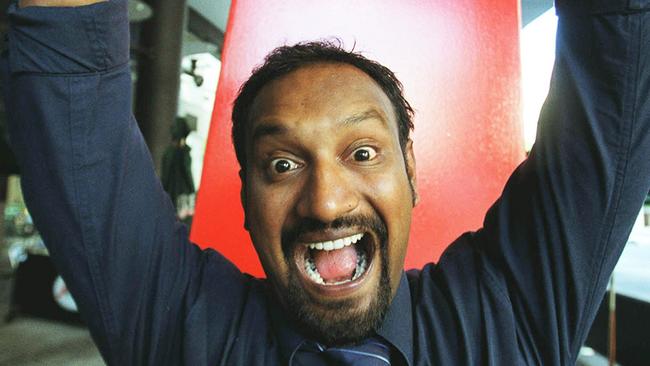
Playing soccer in between studying, he met a crew of Gold Coasters working at Crazies Comedy Restaurant in Brisbane, who suggested young Desh come along and earn some extra money.
“I wasn’t performing, I was just working out the back, but I was always telling the booker that I could do better than the guys performing. Finally she just said … do it then.
“The first time was six minutes of just silence. It was horrifying. But then at the end I got a huge laugh and that was it … I was addicted.
“I had a fellow comic say to me once that when you’re killing it, it’s better than heroin. And he was a heroin addict, so he would know.”
Speaking of highs, Desh was hitting them in both his careers as the new millennium dawned.
He was writing environmental policy legislation in Queensland, while winning accolades as a new comedian.
“Using the words ‘environmental’ and ‘Queensland’ in the same sentence was its own joke back in those days,” he says.
“I actually worked on the first piece of state environmental policy in the 90s, and while it wasn’t great - it was amazing we even had something that was, at best, satisfactory.
“But then I had an opportunity to help write Queensland’s State Coastal Management Plan, which was a real landmark in terms of land use, conservation and exploitation. It even won a national award … not that anyone wanted to know about it.
“Around the same era I was named a finalist in Triple J’s Raw Comedy Competition and was starting to get noticed.”
Desh and his wife decided to move to Sydney to pursue career opportunities, a move that soon paid off.
Until it didn’t.
“It was a slow start for me but once I won over the Blacktown RSL, I was on my way,” he says.
“I was getting some big bookings - the State of Origin, TV spots, big stages and circuits. I was just at the point where I could take that leap and quit my job - because I was still working full-time for the NSW Government.
“But then the Global Financial Crisis happened, and we were way over-exposed. I couldn’t make that leap anymore and comedy gigs were drying up with the economy - plus my wife was three months pregnant. We decided to head back to Queensland.”
Just as they made the decision to return, Desh’s father died. His parents had since moved to the Gold Coast, building the Ormeau Medical Practice, and that helped Desh decide to call the Coast home as well.
But it wasn’t the only factor.
“Believe it or not, it was the light rail that made me choose the Gold Coast,” he says.
“When I heard about that project, I decided this was the city for me. I thought this place really knows what it’s doing, it’s really thinking of the future - that’s exciting and I wanted to be a part of it. There is so much more opportunity here than in Brisbane or the Sunshine Coast.”

Unfortunately, Desh’s first job back in the Sunshine State was with the State Government … just months before Campbell Newman became premier and sacked thousands of public servants.
“I lost my day job … but boy, did it give me some great material for my night job,” laughs Desh.
“It’s actually since then that I feel like I’ve really found the perfect balance between my two lives.
“I remember soon after we moved here, I was still finding my feet and was starting to question if I had made the right decision.
“I had a series of shows booked which featured Tom Gleeson. One night, I stood on the wings of the stage and watched him do a routine on fate. He said, ‘it doesn’t seem to matter what path you take, you always end up where you are meant to be’.
“It really resonated with me. I had just made a big audience laugh and feel good, I was standing backstage in the wings watching a fantastic comedian showcase his talent and craft. I got to go home to my wife and kids and then wake up the next day and go to work to do something that I loved. I was where I was meant to be.
“I can look back now and say that I’m glad I never became a famous comedian, that’s just not the life for me. Even back in those Sydney days, I was still different from the others - I had a real job and a great relationship. That’s not normal.
“Now I have the best of both worlds.”
Desh says with his day job now primarily focused on dealing with climate change adaptation, it’s another opportunity to make the actual world that little bit better.
“The Gold Coast is a great environment for both my careers - now we’re growing as a cultural hub, there are more gigs on offer; and as far as environmental planning goes, this city is actually pretty progressive.
“As much as I love comedy, in my heart I’m a geographer. I love people and place … and with planning, if you do it right, great things can happen.
“Which is kind of funny, given that both my careers involved very little planning - yet great things have happened.”
Creating urban sustainability by day, making them laugh by night … that’s the power of The Deshman.
JULY 11 - ‘I have people come up and say, ‘what’s wrong with you?
The Gold Coast wheelchair basketball star is counting down the days until what she hopes will be her first Paralympics.
And once that’s over, she’ll be counting down the months until she marries fiancee Matt McShane – star of the men’s wheelchair basketball team.
But that’s not all.
It’s a good thing this 29-year-old teacher is handy with a ball, because the juggle is real – she’s educating kids in the classroom and training intensively, all while working tirelessly to increase inclusivity for people with a disability.
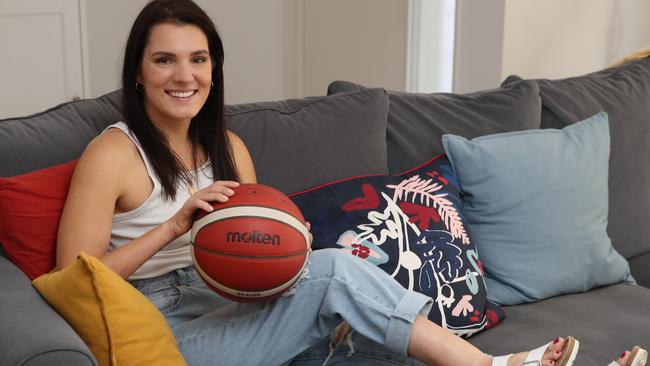
And that’s one lesson it seems many still need to learn.
Ella was born with hereditary sensory motor neuropathy. While she can walk, the progressive disease of the nerves causes weakness and numbness in the legs and arms due to the deterioration of nerve cells. It cannot be stopped.
But then, neither can Ella.
Witness when she’s confronted by some truly inexplicable examples of ableism. Not only is Ella ready with a witty retort, but a plan of action … particularly, her role in teaching inclusive school sports across the Gold Coast for the Sporting Wheelies Association.
“You just wouldn’t believe some of the things people say to me … I can’t believe them myself,” laughs Ella, who also sits on the International Wheelchair Basketball Federation Athlete Steering Committee.
“I’ve had people come up to me and say ‘you’re really pretty for someone with a disability’. And I just think, ‘wow, you’re really rude for someone with a brain’.
“I have people who come up to me and say ‘what’s wrong with you?’ And I just want to say, ‘what’s wrong with you?’ I know I may be different, but I’m not ‘wrong’.
“Or I have people who just start praying over me. I know their intention is good, but we need to try to start thinking from the other person’s perspective … where’s the permission asked? How do they know how I feel about prayer? Or how I feel about my disability? Just because it makes them feel better doesn’t mean it makes me feel better.”
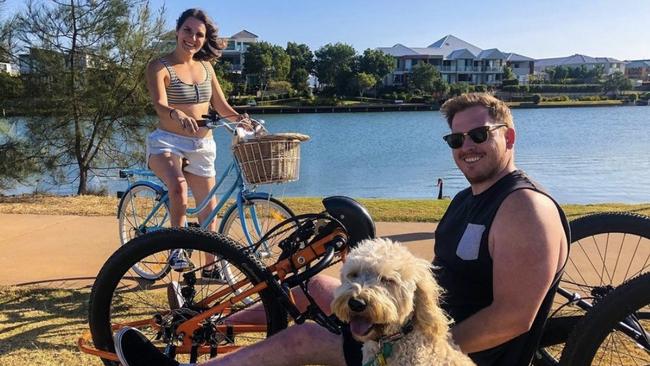
And that’s exactly what Ella loves about the Sporting Wheelies program.
By allowing able-bodied children to participate in wheelchair sports, it gives everyone the opportunity to roll a mile in someone else’s wheels.
“The program is great because it fits perfectly within the curriculum and it helps not just schools but students to be inclusive,” says Ella.
“It’s great to watch the able-bodied children trying out the wheelchair sports. They all say afterwards that it’s a lot harder than it looks. It really gives them the opportunity to see what life is like from a wheelchair, the issues of access and inclusion that can make you feel left out.
“It’s all about early intervention, really. If we give kids this gift of perspective it really helps them learn how to be empathetic, kind and accepting. As they learn, they can then challenge the mindset of people who are still non-inclusive. It’s a generational change and I really think we’re making inroads.”
With not just an inspiring story but truly inspirational behaviour, it’s a wonder that Ella’s “pretty face” doesn’t grace every box of breakfast cereal.
Perhaps that will change in the coming days when Ella discovers if she’s named in the Gliders Paralympics team. But, despite the changing tide of inclusion towards para-sports, the fact remains that being a female athlete with a disability is still not the most lucrative career.
“It’s really hard for me to get a sponsorship. I’ve contacted a lot of businesses but nobody is very interested because they want to know where people will see me. And the truth is, you won’t really see me anywhere unless you come to a game,” she says.
“Basketball is not a game that gets high ratings in Australia, add in the fact that it’s not just women’s basketball but women’s wheelchair basketball … I can understand that we’re not going to give the most bang for the corporate buck.
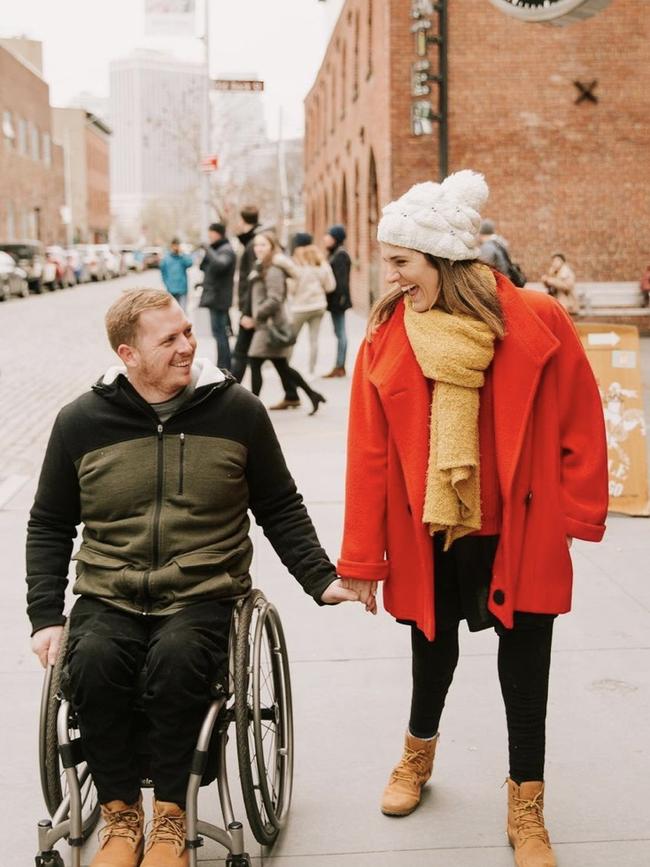
“Still, I’d really love to see more CEOs get passionate about pushing diversity and inclusiveness. The world is reaching a point where they want to listen and we have a lot to say and a lot to teach if we’re given a chance.”
Ella says while the women’s wheelchair basketball team is well supported by Basketball Australia, there is no way she could ever quit her day job.
She says all team members have a very DIY attitude when it comes to providing anything beyond the basics.
“We pay for a lot ourselves,” she says.
“There just isn’t a lot of money for our sport because funding is based on performance.
“It’s not that we get less money because we’re women but because we’re less likely to win a medal. And the thing is there is a bigger pool of men with disabilities who want to play sport than women … and that’s where gender comes into it.
“It comes down to gender norms in society, it’s simply more expected and encouraged for men to participate in sport – even with disabilities.
“But even though more funding would always be welcome, I know just how lucky we are to have the support and safety of our country.
“When I was at a tournament in Thailand in 2019, I was talking to some of the women from the team in Afghanistan. They are just amazing, they were saying bombs will literally drop while they’re on their way to training but they go anyway.
“Just being a woman in that society would be tough, let alone a woman with a disability. That really made me reflect on just how lucky I am.”
It’s a perspective that has certainly helped during the last year.
After the Gliders failed to qualify for the Rio Games in 2016, Ella was pinning her Paralympic dreams on Tokyo in 2020. And then came Covid.
“Right now we just have to be very flexible, plans can change at any time,” she says.
“When the news came out last year that Tokyo would be postponed it was understandable but still devastating. For me, my condition is progressive so my time is limited – every year counts.
“The whole thing has been very difficult but when you have a disability you learn to go with the flow, to constantly recalibrate and to keep things in perspective.
“It was probably easier to take than when we didn’t qualify for Rio. We were top of our zone in 2009 and went over to Beijing to help develop the Chinese Paralympic team and then they ended up beating us. It was heartbreaking.
“I still went to Rio to support Matt and the Rollers, and while it was fantastic to watch and support him, I just knew we should have been out there too.
“It’s now or never for Tokyo.”
And, just as with all things Covid, one delay inevitably led to another.
Ella and Matt always planned to get married after the Tokyo Games, so when that was postponed, so too was their wedding.
“Our date is set for April next year and it’s going to happen regardless, we’ve waited long enough.
“The great thing with Matt is he’s so level-headed, he just accepts what happens and rolls with it. Unless I beat him in basketball, that he can’t handle.
“He was born able-bodied but when he was 18 he caught a virus that attacked his spinal cord. I’ve asked him how he handled that, not just the physical challenge but the mental challenge as well. But he really never broke down, he just adjusted to his new life and made the most of it.
“He’s a Paralympian and that certainly never would have happened in his old life.”
Ella says her positive attitude towards her own abilities comes down to her mother, who she says always pushed her to try new things.
She says while many parents are understandably over-protective of children with disabilities, it can do them a disservice.
“I see parents of kids with disabilities really protect them and wrap them in cotton wool but I don’t think that’s the best thing for them. You have to put your trust in them and let them find their own way.
“I initially started out doing wheelchair racing, but it was just so boring. But Mum still encouraged me to keep on trying to be active and that’s when I found wheelchair basketball. I love being part of a team.
“But what a lot of people don’t realise is just how expensive and difficult it can be for parents to get kids with disabilities into sports.
“Any sport comes with a cost, but add in these specialised wheelchairs and it’s really prohibitive. When I was younger there was hardly any funding. Thankfully that’s improved but I believe we can still do better.”
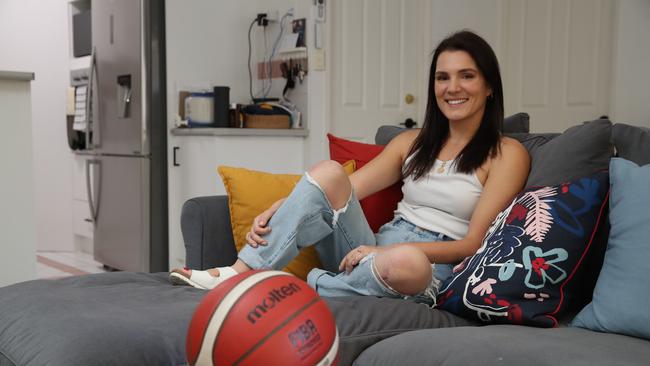
After 13 years playing wheelchair basketball, Ella isn’t sure how much longer she will compete at the elite level.
But the promise of a Paralympics on her own home turf may be too difficult to resist.
“I can’t wait for the Olympics and Paralympics to be in southeast Queensland,” she says.
“I don’t think I’ll still be playing by then, my body won’t let me, but maybe I’ll be coaching. I’d love to be a part of it somehow, it’s just going to be such an awesome atmosphere for the players – nothing compares to that home crowd.
“Even though I grew up in Melbourne, the Gold Coast is 100 per cent my home. I just love it here. From the coffee to the culture to my friends and the city itself, living here is winning every day.”
And just as Ella cheers for the Gold Coast, we’ll be cheering for her Paralympic dream in Tokyo.



